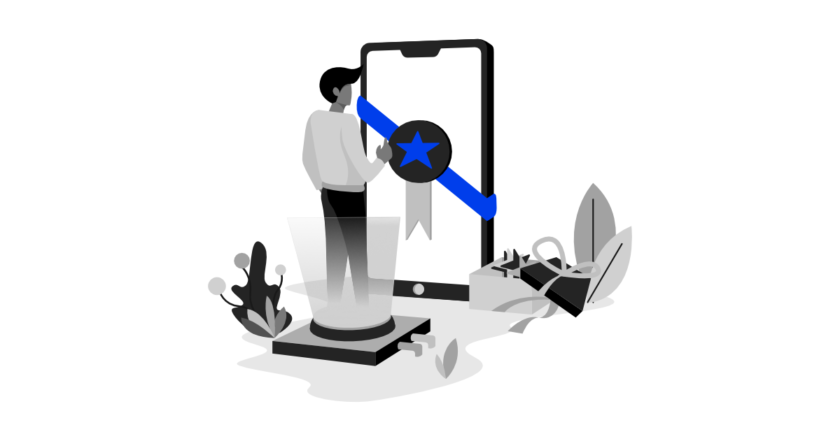SEO professionals, or SEOs as we are affectionately called, are increasingly in demand and indispensable in digital projects. In this article, I present pros and cons of being an SEO professional that I have collected throughout my consulting career.
Index
Every day new professionals arrive on the digital market. Many of them are interested in SEO but almost all are unaware of the career path to becoming a good SEO.
It is important that we talk more about the skills of a good SEO professional, their motivations, and the challenges they will face.
But what is SEO?
SEO stands for “Search Engine Optimization”. It is the practice of trying to optimize web pages in order to achieve better positioning in search results.
SEO is one of the disciplines of digital marketing and possibly one of the most complex.
Also read: What is SEO?
What does an SEO professional do?
Short answer:
Everything! Strategically.
“But Dilmar, isn’t the SEO professional just the one responsible for doing the keyword research and indicating which and how content should be produced?”

Noooo! Much of this view that SEO is only responsible for performing keyword research is our fault.
Many professionals who aspire to be SEOs come to the market with a simplistic view of the profession and end up offering services with a very reduced scope. They focus on scope, not results.
We see professionals who master one or another specialty such as inbound marketing, growth hacking (…), social content or link building calling themselves SEOs on their LinkedIn profiles. I have one thing to say to these: you are not SEOs!
A professional with these skills will not be an SEO until they have a holistic view of the project. He must be able to develop strategies and work with other teams, aiming for long-term, lasting results.
So what does it take to be an SEO?
Unlike other areas of digital marketing, the SEO professional needs to have a wide range of knowledge to do his or her job. I am not saying that to be an SEO you need to master all the disciplines of digital marketing. But you will need to know a lot about several areas to be a good professional.
A good SEO professional should be able to develop strategies that deliver results for his or her clients. When I talk about results I mean good search positioning, a good visitor experience, brand recognition, and of course financial return.
Read also: Improving your technical SEO audit
In addition to specific knowledge of the field, the SEO professional needs to be able to understand the project. For this, you need to have knowledge in areas such as: analytics (this one is more than fundamental), design, UX, statistics, writing, marketing, programming languages (R, Python, Javascript, etc), social media, advertising, project management, and many others.
If you don’t like to study and evolve day by day, perhaps the SEO profession is not for you.
After this introduction to what SEO is and what it takes to be an SEO, let’s get to a list of pros and cons of the profession:
Pros of being an SEO professional

1. SEO Community
I don’t know of any other profession that has such an active and welcoming community (real and virtual). The people who work with SEO are extremely helpful and do not hesitate to help anyone.
Because it is quite broad in scope, some communities are more specific than others. For example, if you take a stroll through the technical SEO communities, you will find some nerds (in a good way and without judgments, please). In content SEO communities, on the other hand, you will find avid and relaxed journalists and copywriters.
Anywhere in the world (or in any social network if you prefer) you will find professionals willing to collaborate and exchange experiences.
The good SEO professional doesn’t mind sharing tactics and strategies with his colleagues. He thinks of the best for the user, the best for the web.
2. SEO is always evolving
SEO and the SEO professional are always evolving. This evolution is fast and requires constant attention and learning from the professional. There is always something new to learn, new “tricks” to discover.
The possibilities for an SEO professional are many. You can be an SEO consultant (local or remote), work in an agency or company. No matter how you work or will work, you can embark on the area that is of interest to you (technical, content, strategic, etc). There are opportunities for everyone who wants to learn or who already has a specific skill.
Read also: Google updates and SEO professionals
3. Helping companies grow
There is something rewarding about helping people and companies grow and achieve their goals. In the past it was very complicated for a small entrepreneur, for example, to open a small business in his or her segment and get results. He could not advertise on TV, newspaper or radio because it was too expensive (and still is in some cases). With the Internet, it is possible to drive this growth.
The SEO professional can change lives. Everyone wins when our work is well done. Users receive content that is relevant and of interest to them, and companies achieve results and can thrive.
4. Analyze data and measure results
SEO is one of the industries that allows you to measure the results of your work. With knowledge in web analytics tools your work becomes very rewarding and generates a lot of value for your client.
The fact that the search engines’ algorithms are a surprise box makes the game even more interesting. The constant testing, measuring, adjusting, retesting, learning, and so on, make this profession an incessant learning experience. The sharing of tests and their results by the community, on various industry sectors, also helps to understand the market more.
5. Some things stay the same
In the midst of so many changes (algorithms, market, organizational culture, etc.) an SEO project is fundamentally about providing the best content and user experience.
Take yourself as an example, as a user performing a search. Isn’t it satisfying when the first result you click on offers the answer to your query? How much time is saved? Imagine that you save two minutes a day by not having to perform new searches for your questions. In one year you would save twelve hours in front of your device. Time enough to read good books or go to the beach and meet the love of your life. Or watch a “Lord of the Rings” marathon.

Read also: SEO Tips for News
Cons of being an SEO professional

None! Hehehe, jokes aside, we all know that no profession is a bed of roses. There are turbulent times in the life of every SEO professional.
Below I list five topics that make our life as SEOs a little bit more difficult.
1. The result does not always depend exclusively on your work
That’s a tough one! It sounds like an excuse but it’s not. I explain.
SEO is the art of seeking better positioning in searches. The work is done, in part, based on search engines and their algorithms.
Just like us, who have goals and strategies for our company or our customers, the search engines have their own business goals and strategies. It is up to the SEO professional to marry these strategies.
Google, for example, has as its mission“toorganize the world’s information so that it is universally accessible and useful to everyone.” Our mission as SEOs must be synergistic with Google’s in order for us to deliver good results.
Compared to other professions such as programmer, designer, or especially offline professions, this may seem unfair. You put so much effort and spend months on a project and sometimes the result doesn’t show up. The factors can be numerous. It could be a change in the algorithm (I don’t really believe in this one, if you do your SEO work well you shouldn’t worry so much about the algorithm), a new player entering the market, a competitor using a similar strategy, etc.
What works in one SEO project will not always work in another, especially in different industries. Faced with these variables it is possible that some strategy you have adopted will not work, or worse, will give negative results.
2. SEO is not cheap
Some clients come to an SEO consultant or agency to work on a project with the thought, “Google is free, why should I spend so much on SEO? Why should I pay to be on Google?
This thinking is justifiable in some cases, depending on the digital maturity of the customer.
SEO demands training, tools, and constant monitoring of the market where the client is inserted. None of this is cheap.
Read also: 10 SEO Tools Every Website Should Use
SEO professionals should educate their clients and above that structuring a holistic SEO project is not cheap.
SEO needs to be worked on constantly. Those who think that a one-time project or a tool setup will provide long-term results are mistaken. The scenario in which the company is inserted changes. It is necessary to invest in SEO permanently.
It is not uncommon for companies to invest for months or even years in SEO and then abandon their projects because they do not see the results. Months or years of SEO work can go down the drain if there is no continuity in the SEO project.
3. Medium and long term results
As I mentioned before, SEO should be something permanent.
Many stop believing in SEO and experiencing its results because they think it is something that can be achieved in the short term. Quick results are seen on a small scale when fixing gross errors, such as blocking indexing, for example.
Gaining organic visibility is directly linked to the relevance that the site has for its audience. It relates to brand recognition and authority within the industry it is in. You can’t do branding in one day. You cannot show authority on a subject with only shallow content produced.
SEO projects involve different areas of organizations, different products. They demand a fine-tuned relationship with planning, commercial, developers, and of course content producers. This relationship is built up over time. It is not something that can be achieved overnight.
4. Explaining SEO is difficult
Try to convince a CxO that he should allocate more resources (human, technological and financial) in the expectation of getting more organic traffic (in the medium and long term) instead of investing directly in other acquisition channels with faster return. Complicated, right?
The SEO professional should get as close as possible to all stakeholders. Talk to and align business expectations, technical and content needs. Make it clear that it is a broad project, strongly linked with the organization’s ability to face different scenarios in the future.
The relationship with the devs must have synergy, be accompanied by full documentation and clarification of the reasons for each action. The guidelines for the content production teams must be precise, aligned with the organization’s premises. Whenever possible, the SEO professional should take workshops with these and other areas to ensure rapport.
Read also: 6 Objections to SEO and how to deal with them
5. SEO alone does not work
Many SEO professionals have already realized that putting SEO as a stand-alone solution to a company’s digital marketing needs is a waste of time.
Isolating SEO (and SEOs) from the rest of digital marketing is not only a mistake, but also fruitless for the organization.
Many SEOs still resist the fact that to be a good SEO professional requires technical skills and traditional marketing.
In conclusion
We have seen what SEO is and what an SEO professional does.
We also saw that to be a good SEO the professional must be able to elaborate strategies that bring value to his client or company.
I have listed five pros and five cons of being an SEO professional based on my experience.
And you, do you agree with the pros and cons presented? Send us a message or get in touch via social networks.
Continue reading: SEO for copywriters – the “complete copywriter” figure
